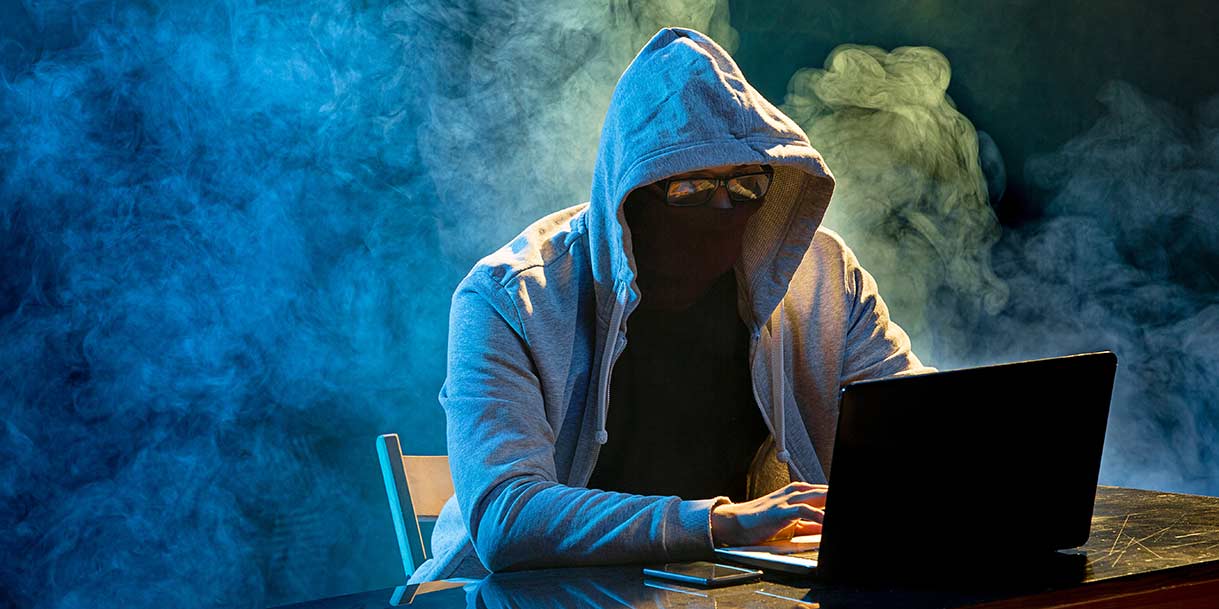Felony Use of a Computer in the Commission of a Crime
There are additional penalties for committing a crime with a computer. A defense attorney trained and familiar with the workings and utilization of computer and internet evidence is essential to the best defense

Using a Computer to Commit a Crime is a Felony
The law wishes to discourage people from using computers for illegal purposes due to their tendency to embolden people with criminal intent because they believe they will not get caught. The thought is that if people believe there is less of a chance of being caught, there is an increased likelihood they will commit certain crimes. An experienced computer crimes defense lawyer is your best hope of avoiding jail and a conviction for computer and internet crimes.
Law Enforcement is Adept at Computer and Internet Investigations
Today’s police are not your father and mother’s police. Today, police in special units continuously train at seminars by leading computer technology and usage experts. Police know all the tricks for concealing identities, creating false internet personas, piercing false personas, and tracking down and snaring people they believe are using a computer to commit a crime. In fact, the police today are probably far more computer savvy than many of their targets. Therefore, anyone charged with Using a Computer in the Commission of a Crime must have a defense attorney who is intimately familiar with computer functionality and terminology and have experts available to help build a defense and discredit the government’s evidence.
Judges readily issue warrants to search computers and other digital devices. If police officers or law enforcement agents secure a warrant without probable cause or conduct a warrantless search, we can file a Motion to Suppress any illegally or unconstitutionally seized evidence.
Examples of underlying crimes receiving extra punishment if committed using the internet or a computer system:
Michigan law states that a person shall not use the internet or a computer to communicate with any person to commit certain crimes, including but not limited to:
- Child Sexually Abusive Material or Activity involving a minor (producing, possessing, distributing, or receiving)(child pornography charges);
- Kidnapping a Minor;
- Criminal Sexual Conduct with a Minor;
- Unlawful Imprisonment of a Minor;
- Solicitation of a Minor;
- Stalking; and
- Planting Explosives on a Passenger Vehicle or Vessel Causing Death.
Penalties for Using the Internet or a Computer to Commit a Crime
To determine the possible penalty, you must look at the maximum possible prison sentence for the underlying crime. For example, if someone uses a computer o commit a crime that is punishable by up to 5 years in prison, then the maximum penalty for using a computer to facilitate that crime is punishable by up to 10 years. The following is a list of the maximum jail and prison sentences. If the underlying crime carries a penalty of —
- less than 1 year in jail: misdemeanor, then using a computer to commit that crime carries a separate penalty of up to 1 year in jail;
- between 1 and 2 years in jail: felony, a separate penalty of up to 2 years in prison;
- between 2 and 4 years in jail: felony, a separate penalty of up to 4 years in prison;
- between 4 and 10 years in prison: felony, a separate penalty of up to 10 years in prison;
- between 10 and 15 years in prison: felony, a separate penalty of up to 15 years in prison; and
- from 15 years to life: felony, 20 a separate penalty of up to years in prison.
In addition to jail or prison, a judge can give someone up to 2 years of probation for a misdemeanor and up to 5 years for a felony conviction.
What is especially important is that judges can order that a defendant serve consecutively prison sentences for the computer crime and the underlying crime, potentially doubling a defendant’s time behind bars. In other words, the defendant must complete the punishment for the underlying crime before the second sentence begins.

Smartphones, Tablets, Smart Watches, and Similar Devices are “Computers.”
In case it is not apparent, today’s cell phones and other devices are simply small-sized computers, and it is not a defense that a person did not use a desktop or laptop computer in the commission of a crime.
Defenses against Using a Computer in the commission of a Crime:
Although most defense lawyers simply assume charges of Using a Computer to Commit a Crime are not defensible, a technologically savvy lawyer can frequently build a strong defense.
The police have the wrong suspect.
No matter which alleged underlying crime occurred, if more than one person could physically access the computer on which the crime occurred, it may be difficult to establish who actually committed the crime. Sometimes, people leave a room or building and do not log off. Anyone who had physical access to the computer could have committed the underlying offense. Anyone, especially if they are accessing child pornography, for example, would have every motive in the world to use someone else’s computer or login information. Cell phones and tablets are especially vulnerable to unauthorized use, especially if roommates or friends have access to the device.
Someone hacked into my system and committed the underlying crime.
Again, anyone wanting to visit an illegal child pornography site would not want to do so on their computer. One false click on the wrong email or pop-up can lead to someone else having access to your computer without your knowledge. Someone might have used remote hacking and controlling another person’s computer to frame them or to view prohibited pictures and videos with anonymous impunity.
The accessing of child sexually abusive material was unintentional.
Some nefarious child pornography websites are notorious for luring unsuspecting people to make an ill-advised click that results in an unintentional visit to the site. Once drawn in, there is a chance malware can hijack a user’s computer and not let it go, even going so far as to force downloads on the hostage computer. An astute defense attorney savvy in computer workings would be able to put a defense computer expert on the stand and have them explain how hackers do this and that the improper computer usage and downloading were unintentional.
The defendant did not intend for a “message” to be threatening, frightening, harassing, or intimidating.
To be charged with using a computer in the commission of a crime, the underlying offense must be proven beyond a reasonable doubt. The jury could not convict you of using a computer in the commission of a crime if there was not a crime. An experienced computer crimes defense lawyer would attack the underlying charge full-tilt. If successful, that charge and the computer crime charge would be dismissed and thrown out of court.
These are not the only potential defenses to this serious charge. A top defense attorney must employ every avenue to attack this type of charge because a conviction’s consequences are severe. It is critical to retain a highly experienced and sophisticated criminal defense attorney with vast experience and expertise in criminal law and an outstanding grasp of computers, including how they work. In these cases, it is often most effective to have a team of lawyers working together and collaborating on building a defense and mitigating any damage.

Computer Crimes Defense Firm
The computer crimes defense lawyers on LEWIS & DICKSTEIN, P.L.L.C.’s Defense Team have extensive experience defending computer cases. We have a network of computer experts to call upon to explain to a judge, prosecutor, or jury the technicalities of a defense to this charge in simple, clear, and understandable language any layman can understand.
The devoted and determined defense attorneys at LEWIS & DICKSTEIN, P.L.L.C. have successfully represented thousands of clients on felony and misdemeanor charges involving computers throughout Michigan. We have a well-earned reputation for providing the highest quality defense and aggressive representation.
Call us today at (248) 263-6800 for a free consultation or complete an online Request for Assistance Form. We will contact you promptly and find a way to help you.












